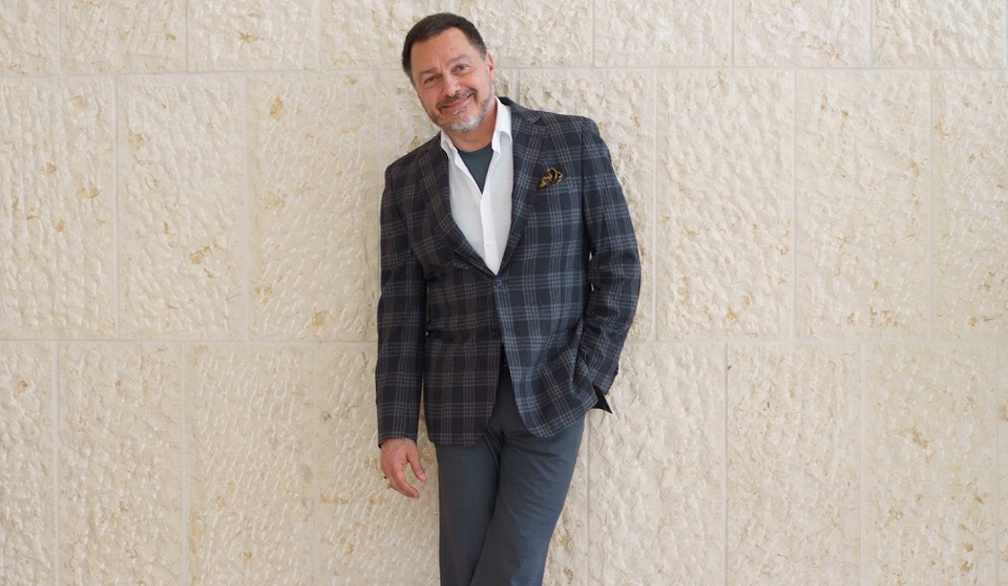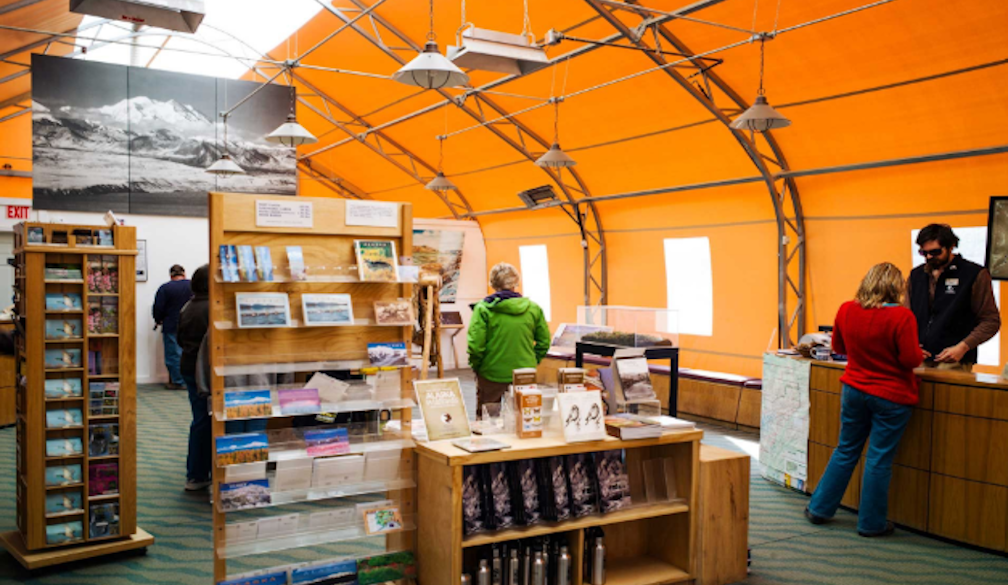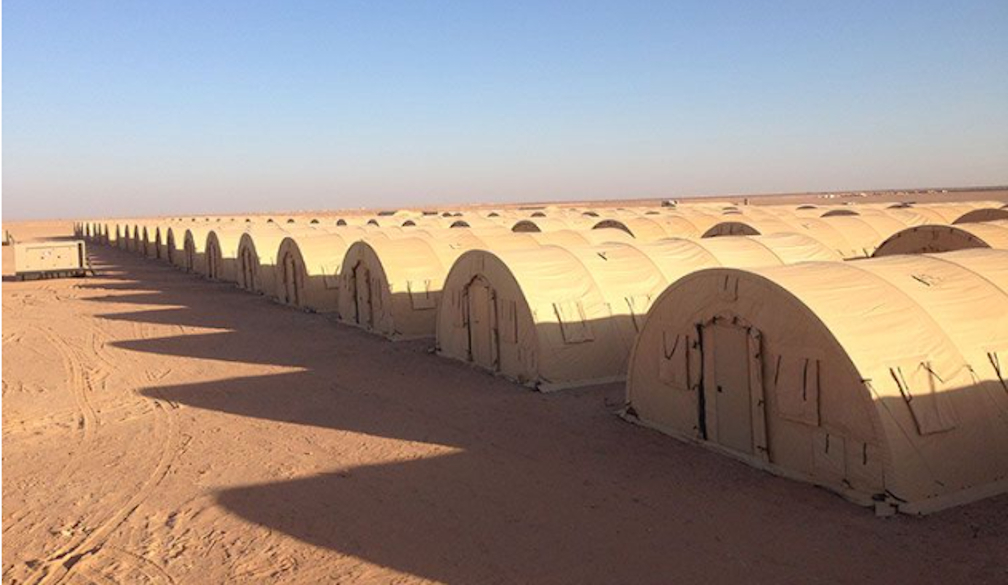The Paradox of Belonging: How Our Greatest Strength Became Our Greatest Weakness
- Written by Mark J. Chironna, PhD.

I realized one morning that I was opening Twitter hoping to be outraged. Not to learn something. Not to connect with friends. To find something, or someone, to be angry at.
That's when that profound reminder from the late Gregory Bateson hit me: “It takes two to know one”. 1 We are not wired to be neutral. We are wired to belong. And somewhere along the way, outrage had become a form of belonging I found acceptable.
But here's what I had to admit to myself: Yes, we're wired this way, but that wiring also reveals something broken in the human condition. This isn't just evolutionary psychology. It's a form of fragmentation that runs deeper. Political satirist and author Andrew Heaton explains that humans are "a hyper-social species. Not just social—hyper-social."2 And he may be quite right about the evolutionary advantages: our ancestors who shared child-rearing responsibilities and resources were more likely to survive.3
But Heaton also identifies something darker: "alongside that cooperation, there also seem to be preemptively aggressive tendencies bred into humans."4 We're not just peaceful until threatened, "we're often actively looking for one. The need for an enemy can actually create the perception of an enemy."5
That tendency to actively seek enemies, isn't just biology. It's a manifestation of something fractured in how we relate to ourselves and others. Every great spiritual tradition recognizes this: we have fallen from an original wholeness. Christianity speaks of the Fall of the human race and how it led to exile, estrangement, and alienation from the Creator. Buddhism names dukkha, the fundamental unsatisfactoriness and suffering woven into existence. Judaism tells of shattered vessels and exile. Islam describes humanity's forgetfulness of our covenant with the Divine. Indigenous traditions speak of broken harmony with the natural world.
The language differs, yet there indeed is something in the diagnosis that is universal: something in the human condition is not as it should be. We are fragmented and have collectively and synchronously forgotten something essential.
Truth be told, none of us arrives at adulthood without wounds rooted in the ways our need to belong has been denied, betrayed, or weaponized against us. Maybe you were excluded from the lunch table in middle school. Maybe your family made love conditional on performance. Maybe you learned that belonging meant erasing parts of yourself that didn't fit.
These wounds are real. They shape us. But here's what we can't do: we can't use them as an excuse to abandon agency.
Humans possess an inherent tendency toward tribalism, a phenomenon that merits deeper examination and reflection. Despite our collective outrage at this tendency, it persists within us. We have experienced harm as a result, yet we continue to make conscious choices. Each day, we decide whether to pursue outrage, to marginalize those who disagree with us, or to express our political identity in pursuit of group confirmation. As Heaton notes, contemporary tribalism demonstrates "the reflexive tendency to 'other' people, to seek enemies, and to root for 'my team' no matter what the facts are. It's mean-spirited and dogmatic."6
That's a choice we make, even if it doesn't always feel like one.
The problem, Heaton suggests, isn't that we're too tribal, it's that "a lot of the political rancor we're experiencing comes from people being increasingly adrift—lacking a place to belong—and finding a new home in politics."7
We've lost genuine community, and politics has rushed in to fill the void, but with all the enemy-seeking behavior and none of the genuine interdependence that made tribal belonging life-giving rather than destructive.
We are increasingly opting for superficial alternatives to genuine belonging. Furthermore, we often label these alternatives as "community," although they primarily consist of collective outrage.
An established Lakota teaching addresses this societal fragmentation. Luther Standing Bear, an Oglala Lakota chief and prolific writer in the 1920s and 1930s, articulated an observation that remains highly relevant to the present crisis: "The old Lakota was wise. He knew that man's heart away from nature becomes hard; he knew that lack of respect for growing, living things soon led to lack of respect for humans, too."8
Consider that carefully: “man’s… heart becomes hard”. This change is not just caused by our natural instincts or what we have been through before. More often, it happens when we slowly lose connection with something important. Standing Bear saw that true belonging, which helps us heal instead of grow distant, comes from a different way of looking at life.
"Kinship with all creatures of the earth, sky and water was a real and active principle," he wrote. "The animals had rights—the right of man's protection, the right to live, the right to multiply, the right to freedom, and the right to man's indebtedness... This concept of life and its relations filled us with the joy and mystery of living; it gave us reverence for all life; it made a place for all things in the scheme of existence with equal importance to all."9
Notice what's absent from Standing Bear's description: the need for enemies. The reflexive othering. The mean-spiritedness. Instead, there's a "place for all things" with "equal importance to all."
This wasn't naive romanticism. Standing Bear lived through the destruction of his people's way of life, witnessed the reservation system, worked in Hollywood, and wrote with clear eyes about both cultures. He knew what he was describing, and he knew what had been lost. "Out of the Indian approach to life there came a great freedom, an intense and absorbing respect for life, enriching faith in a Supreme Power, and principles of truth, honesty, generosity, equity and brotherhood as a guide to mundane relations."10
We traded reverence for all life for the dopamine hit of dunking on our enemies on social media.
That's a choice. And it's hardening our hearts.
But here's where we need to pause and examine our own assumptions. Even the word "tribalism" may be part of the problem.
Scholars at Harvard Divinity School point out that "in much of the West, 'tribal' often implies 'savage,' evoking stereotypes of primitiveness and backwardness."11 They note that "many Native Americans and First Nations people around the world view their tribal affiliations positively and would recoil at the suggestion that to be tribal is to be uncivilized."12
More troubling still: "The trouble with the term goes further. It rests on flawed assumptions, specifically regarding how actual so-called tribal people have for the most part lived in the past and into the present. Real 'tribes' have rarely been as polarized as many Americans today are."13
This is not merely a semantic quibble. If we're using "tribal" as shorthand for our current dysfunction, we may be slandering actual Indigenous communities who had, and have, far more sophisticated ways of managing pluralism than we do. As the Harvard researchers argue, "we may be missing a chance to draw from Indigenous wisdom—'tribal' wisdom—insights into how better to live in pluralistic communities."14
Research among African communities that many would consider tribal "reveals that tribalism, properly understood, may actually be the antidote to our problem of polarization rather than another name for it."15
So, we face a triple irony: First, we've lost the genuine community our deep wiring craves spiritually, existentially, psychologically, phenomenologically, and ontologically. Second, we're using the wrong word to describe both our problem and potential solutions. And third, we're choosing to remain stuck, claiming our wounds made us do it, rather than exercising the agency we actually have to choose differently.
Let me unpack what I mean:
We encounter a threefold irony. First, we have lost the authentic community that our fundamental nature seeks on spiritual, existential, psychological, phenomenological, and ontological levels. Second, we employ inaccurate terminology to describe both our challenges and possible solutions. Third, we persist in our current state, implying that our passivity in relation to past wounds is preferable to recognizing and exercising our capacity for agency and change. Our dilatory wills (our tendency to delay, to procrastinate, to choose inaction over the difficult work of change) choose the familiar pain of fragmentation over the uncertain work of restoration.
Let me unpack that first irony, the loss of genuine community, because it operates at multiple levels simultaneously:
Spiritually, we've lost connection to the transcendent, to something larger than ourselves that gives life meaning and direction. When belonging is rooted in reverence for something beyond our tribal identity, whether that's the sacred, the common good, or shared moral commitments, it creates a fundamentally different bond than belonging rooted in shared political grievance.
Existentially, we face what philosophers call "thrownness”, we're thrown into a world we didn't choose, searching for authentic meaning in a society that offers us only consumerist or ideological substitutes. We're adrift, as Heaton observed, and that drift isn't just circumstantial. It's about the loss of any stable ground from which to build a life of significance. Politics rushes in to fill this existential void, offering simple narratives of enemies and allies as a substitute for genuine purpose.
Psychologically, our most basic needs for safety, recognition, and identity go unmet in increasingly atomized (broken down into isolated individuals, disconnected from meaningful social bonds and community structures) lives. We evolved for face-to-face communities where we were known, truly known, by those around us. Instead, we have thousands of "followers" and zero people who would notice if we didn't come home tonight. The psychological toll of this disconnection shows up as anxiety, depression, and, crucially, the desperate search for any group that will claim us, even if that group is defined entirely by who it opposes.
Phenomenologically, that is, in our lived, moment-to-moment experience, we simply don't feel the texture of genuine belonging anymore. We've forgotten what it feels like to be part of something that doesn't require performance or ideological purity. Our actual lived experience is of transactional relationships and conditional acceptance.
Ontologically, at the level of our very being, what it means to be human, we've become something other than what we were designed to be. This isn't romantic nostalgia; it's a recognition that human beings as interdependent, generous, reverent creatures represent a different mode of existence than human beings as isolated, accumulating, anxious performers. The shift isn't just about what we do; it's about what we are. We've changed the fundamental nature of human being-in-the-world.
These five dimensions aren't separate problems; they're five ways of seeing the same crisis. We've lost community at every level of what it means to be human.
What if we have been using the wrong word to describe both our problem and potential solutions? And we're choosing to remain stuck, claiming our wounds made us do it, rather than exercising the agency we actually have to choose differently.
Charles Eastman (Ohiyesa), a Santee Dakota physician and author who lived from 1858 to 1939, provides a window into what genuine tribal community actually entailed, and it bears almost no resemblance to our current political tribalism.
Eastman was uniquely positioned to understand both worlds. Raised traditionally until age fifteen, he went on to graduate from Dartmouth and Boston University Medical School, becoming the first Native American licensed physician. He was at Pine Ridge during the Wounded Knee massacre. He spent his life trying to bridge two cultures, and his writings offer unflinching comparisons.
Here's what he observed about the Indigenous communities he knew: "The native American has been generally despised by his white conquerors for his poverty and simplicity. They forget, perhaps, that his religion forbade the accumulation of wealth and the enjoyment of luxury. To him, as to other single-minded men in every age and race, from Diogenes to the brothers of Saint Francis, from the Montanists to the Shakers, the love of possessions has appeared a snare, and the burdens of a complex society a source of needless peril and temptation. Furthermore, it was the rule of his life to share the fruits of his skill and success with his less fortunate brothers."16
Let that sink in. Real tribal life forbade accumulation. It required sharing what you had with those who had less. The very opposite of hoarding, of building walls, of protecting "mine" from "theirs."
Eastman goes further, describing how children were taught: "It was our belief that the love of possessions is a weakness to be overcome... Children must early learn the beauty of generosity. They are taught to give what they prize most, that they may taste the happiness of giving... The Indians in their simplicity literally give away all that they have—to relatives, to guests of other tribes or clans, but above all to the poor and the aged, from whom they can hope for no return."17
Read that last phrase again: "from whom they can hope for no return."
This is the polar opposite of transactional tribalism. You don't perform generosity to signal your virtue to your in-group. You don't share to gain status. You give to those who cannot pay you back. You give what you "prize most" not what's convenient.
This isn't just noble sentiment; it's a fundamentally different model of what belonging means. In this framework, belonging isn't about who you exclude. It's about who you include, especially the vulnerable.
And Eastman saw clearly what happened when this was lost. Reflecting on his own assimilation, he wrote with profound sadness: "As a child, I understood how to give; I have forgotten that grace since I became civilized. I lived the natural life, whereas now I live the artificial.”18
"I have forgotten that grace since I became civilized."
That line should haunt us. What Eastman calls "civilization" is what we're all swimming in, the accumulation, the performance, the transactional relationships, the need to signal belonging through exclusion rather than inclusion. And he's naming it clearly: this is forgetting. We knew something once, as a species, and we've forgotten it.
The tragedy isn't that we're "too tribal." The tragedy is that we've lost what made tribes actually work: radical generosity, reverence for all life, making a place for all things, giving what we prize most to those who cannot repay us.
We've kept the enemy-seeking but lost the belonging.
So where does this leave us?
We can't return to the Serengeti or to pre-colonial Indigenous life. We can't un-invent social media or undo modernity's atomization. We're stuck in this moment, with our evolutionary wiring, our personal wounds, and our hardened hearts.
But we have something that no algorithm can strip from us: agency.
Here's what choosing differently might actually look like:
When you find yourself seeking outrage, on Twitter, in the news, in your group chats, pause and name it: "I'm looking for an enemy right now. Why?" Sometimes the answer is boredom. Sometimes it's avoiding something harder. Often it's the craving for that tribal belonging hit. Naming it doesn't make it go away, but it creates a tiny gap between stimulus and response. That gap is where agency lives.
Eastman's test is brutal and beautiful: give what you prize most to those who cannot repay you. This isn't about writing a check to a worthy cause (though that's fine too). This is about costly, inconvenient acts that violate the transactional logic of our "civilized" world.
Maybe it's your time with someone who bores you. Maybe it's your expertise given freely to someone who can't advance your career. Maybe it's your attention to someone your in-group has decided is "the enemy." The point is to practice a different kind of belonging, one rooted in inclusion rather than exclusion.
Our genetic wiring was designed for groups of maybe 150 people, not 150 million. Stop trying to have meaningful belonging at scale. Instead, invest in one or two small communities where you actually know people's names, stories, and struggles. A book club. A neighborhood garden. A weekly high-school basketball game. Anything where you have to show up in person, where people notice if you're gone.
Yes, these feel pathetically small compared to the grand culture war battles online. That's the point. You can't fix American polarization, but you can know and potentially love your neighbor.
Every platform you're on is designed to show you content that will make you angry, because anger drives engagement. This isn't conspiracy theory; it's their business model. Standing Bear said our hearts become hard when we lose connection to growing, living things. The algorithm is industrial-scale heart-hardening machinery.
The resistance is simple but not easy: curate ruthlessly, unfollow, mute, and block when necessary. Not because you're fragile, but because you're exercising agency over what gets to shape your heart. You wouldn't drink poisoned water. Stop drinking poisoned information streams.
This is the hardest part. You're wired to seek enemies. You've been wounded in your need to belong. You live in a culture that has forgotten the grace of giving. All of that is true.
And you can choose differently right now.
Both things are true. The temptation is to collapse into either determinism ("I can't help it; I'm just wired this way") or naïve voluntarism ("I'll just choose to be better"). Neither works. The wisdom is in holding the tension: you're shaped by forces beyond your control, and you have meaningful agency in this moment.
The deepest human need is to be able to say "we" and mean it. Right now, most of us can only say "we" by defining ourselves against "them." We're Democrats because we're not Republicans. We're progressives because we're not conservatives. We're rationalists because we're not superstitious. We're whatever-we-are because we're not whatever-they-are.
This is the poverty Eastman described. Real belonging says "we" as an act of inclusion, not exclusion. It makes room for all things with equal importance. It practices kinship with all creatures.
You probably can't do this with everyone. That's fine. But you can do it with someone. Start with one relationship where you practice standing together for something rather than against someone else.
What did real tribal communities understand about living with difference that we've forgotten?
They understood that belonging isn't a zero-sum game. That reverence for life includes reverence for human life, even life that looks different from yours. That generosity isn't transactional. That accumulation, whether of wealth or ideological purity or social media clout, is a snare. That making a place for all things matters more than winning.
And how do we rebuild belonging without building walls?
We make a choice, today, in this moment. Not to fix everything. Not to heal American polarization. Not to transcend our evolutionary wiring or our personal wounds.
Just to do one thing differently.
Give what you prize most to someone who cannot repay you. Turn off the outrage engine. Learn the name of your neighbor. Practice saying "we" as inclusion rather than exclusion. Let your heart soften rather than harden.
The paradox is this: our greatest strength, our capacity for hyper-social connection, becomes our greatest weakness when we forget what connection actually requires. It requires vulnerability, not performance. It requires generosity, not accumulation. It requires reverence, not conquest.
We're not going back to the Serengeti or to pre-colonial Indigenous life. But we can remember what they knew: that every soul must meet the morning sun and the Great Silence alone, and that this solitude is what makes genuine connection possible. That the earth is tame, not wild, if we approach it with reverence. That man's heart away from nature becomes hard.
And yet, we have no choice but to acknowledge the urgency of this moment. Psychiatrist and philosopher Iain McGilchrist, in his monumental work The Matter With Things, argues that Western civilization now faces what may be its final test. Twice before in Western history, in ancient Greece and then in Rome, civilizations collapsed when they became dominated by narrow, reductive thinking that privileged power and manipulation over wisdom and understanding. ¹⁹ McGilchrist warns that "the same trajectory is now being pursued for a third time. After the miraculous outpouring of creativity in the arts, science, society, and philosophy that we call the Renaissance, our civilization has, since the Enlightenment, moved further and further to the left, drunk on the belief that it knows everything and can fix everything. We are like sleepwalkers ambling toward the abyss.”²⁰ We need to let that sink in…deeply enough to motivate us in a different way.
In his epilogue, McGilchrist writes with stark clarity: "We have unmade the world. This is entirely new in the history of humanity, and it is impossible to exaggerate its significance."²¹ He continues: "We would appear to be engaged in committing suicide, intellectual and moral—if not indeed literal; excluding whole aspects of reality, resulting in a version of the world that 'computes' as far as the left hemisphere is concerned, but is grossly impoverished and lacking in meaning."²²
McGilchrist's diagnosis connects directly to what we've been exploring: when civilizations become driven by "might and power, more and more power," they lose attention to harmony, wholeness, and reverence. "Eventually, such a civilization collapses."²³
The choice is ours. The question is whether we'll make it.
Endnotes
-
Andrew Heaton, quoted in "Tribalism," Democracy Group, https://www.democracygroup.org/blog/tribalism
-
Ibid.
-
Ibid.
-
Ibid.
-
Ibid.
-
Ibid.
-
Luther Standing Bear, quoted in "Luther Standing Bear," Indigenous People, https://www.indigenouspeople.net/standbea.htm
-
Ibid.
-
Ibid.
-
"Rethinking Tribalism," Harvard Divinity School Bulletin, https://bulletin.hds.harvard.edu/rethinking-tribalism/
-
Ibid.
-
Ibid.
-
Ibid.
-
Ibid.
-
Charles Alexander Eastman, The Soul of the Indian, quoted in "Charles Alexander Eastman Quotes," Goodreads, https://www.goodreads.com/author/quotes/135759.Charles_Alexander_Eastman
-
Ibid.
-
Charles Eastman, quoted in "The Soul of An Indian: The Best Quotes," Glad.is, https://glad.is/blogs/articles/the-soul-of-an-indian-the-best-quotes-from-charles-eastman-ohiyesa
-
"Insights from 'The Matter With Things,'" Channel McGilchrist, https://channelmcgilchrist.com/insights-from-the-matter-with-things/
-
Iain McGilchrist, "Resist the Machine Apocalypse," First Things, March 2024, https://firstthings.com/resist-the-machine-apocalypse/
-
Iain McGilchrist, The Matter With Things, quoted in Richard Gault, "Book Review: The Matter with Things by Iain McGilchrist," Beshara Magazine, January 5, 2025, https://besharamagazine.org/metaphysics-spirituality/iain-mcgilchrist-the-matter-with-things-review/
-
Ibid.
-
Iain McGilchrist, interview, "Is Western Civilization Bound to Fall?" Hungarian Conservative, September 22, 2025, https://www.hungarianconservative.com/articles/interview/western-civilization-culture-left-hemisphere-authoritarian-iain-mcgilchrist/
www.markchironna.com












